I believe XCode is incorrectly reporting Swift Access Race in my SynchronizedDictionary - or is it?
My SynchronizedDictionary looks like this:
public struct SynchronizedDictionary<K: Hashable, V> {
private var dictionary = [K: V]()
private let queue = DispatchQueue(
label: "SynchronizedDictionary",
qos: DispatchQoS.userInitiated,
attributes: [DispatchQueue.Attributes.concurrent]
)
public subscript(key: K) -> V? {
get {
return queue.sync {
return self.dictionary[key]
}
}
mutating set {
queue.sync(flags: .barrier) {
self.dictionary[key] = newValue
}
}
}
}
The following test code will trigger a "Swift Access Race" issue (when the Thread Sanitizer is turned on for the scheme):
var syncDict = SynchronizedDictionary<String, String>()
let setExpectation = XCTestExpectation(description: "set_expectation")
let getExpectation = XCTestExpectation(description: "get_expectation")
let queue = DispatchQueue(label: "SyncDictTest", qos: .background, attributes: [.concurrent])
queue.async {
for i in 0...100 {
syncDict["\(i)"] = "\(i)"
}
setExpectation.fulfill()
}
queue.async {
for i in 0...100 {
_ = syncDict["\(i)"]
}
getExpectation.fulfill()
}
self.wait(for: [setExpectation, getExpectation], timeout: 30)
The Swift Race Access look like this:
 I really did not expect there to be an access race condition here, because the
I really did not expect there to be an access race condition here, because the SynchronizedDictionary should handle the concurrency.
I can fix the issue by, in the test, wrapping the getting and setting in a DispatchQueue similar to the actual implementation of the SynchronizedDictionary:
let accessQueue = DispatchQueue(
label: "AccessQueue",
qos: DispatchQoS.userInitiated,
attributes: [DispatchQueue.Attributes.concurrent]
)
var syncDict = SynchronizedDictionary<String, String>()
let setExpectation = XCTestExpectation(description: "set_expectation")
let getExpectation = XCTestExpectation(description: "get_expectation")
let queue = DispatchQueue(label: "SyncDictTest", qos: .background, attributes: [.concurrent])
queue.async {
for i in 0...100 {
accessQueue.sync(flags: .barrier) {
syncDict["\(i)"] = "\(i)"
}
}
setExpectation.fulfill()
}
queue.async {
for i in 0...100 {
accessQueue.sync {
_ = syncDict["\(i)"]
}
}
getExpectation.fulfill()
}
self.wait(for: [setExpectation, getExpectation], timeout: 30)
...but that already happens inside the SynchronizedDictionary - so why is Xcode reporting an Access Race Condition? - is Xcode at fault, or am I missing something?